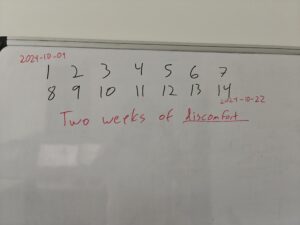This morning, I was looking for an excuse to procrastinate on my day job, and lucky for me, YouTube’s algorithm came to the rescue. It recommended a podcast interview with a scientist talking about cancer research. So, naturally, I clicked on it.
They discussed a lot about metabolic therapy for cancer that involves primarily dietary changes—specifically reducing glucose and increasing ketones as a source of energy. This immediately reminded me of the popular keto diet and another podcast I’d heard a while back, where a different guest talked about intermittent fasting.
My train of thought kept rolling, and I remembered an article I read a while ago called Manage Your Energy, Not Your Time, from HBR’s 10 Must Reads on Managing Yourself. That’s when it hit me—one of the reasons I sometimes don’t get things done is because I’m just tired. Overall, I’m a healthy person, aside from carrying an extra 15 kilos (Hey, this is MY blog and I’ll use whatever units I want), and I think that if I want to get anywhere with this 5 in 5 quest, I need to manage not just my time but also my energy.
Like I mentioned before, I’m often on the brink of burnout. Adding more effort into the mix won’t be sustainable long-term, so I’ll need to increase my energy and focus if I’m going to make this work. I realized that the key to improving both my energy and mental capacity is going to start with my diet—and then exercise.
Now, in the past, I’ve both failed and succeeded at similar health/fitness goals, so I know I can’t make drastic changes all at once. The best way to achieve steady, sustainable progress is through small, incremental steps. I also like keeping things simple, so here’s what I’m thinking: I’m going to focus on changing my eating habits over the next two weeks. I’m not jumping straight into a full keto diet; I’m going to start with intermittent fasting and eliminating sugary drinks, junk food and bread from my diet. It’s going to SUUUUUUUCK, but I’ll be using a visual reminder on my whiteboard to motivate myself. I’m just aiming for 14 days of discomfort. That’s it. I estimate that’s how long it will take me to get used to intermittent fasting.

After the initial two weeks, I’ll keep it going, but I’m mentally preparing myself for those first two weeks to be tough. After that, I’ll maintain the fasting and then look into adding more exercise beyond my usual morning walks. Eventually, I might even consider a keto diet, but for now, intermittent fasting is enough. I mean, not eating might suck, but it’s simple, right? So let’s start with that and refine the process as we go.
Uh… and while I was looking for a stock photo for this post, I searched for “fasting” and the results had sooooo many pictures of burgers and fries. WTF?

